What Happens To Your Body When You Eat Almond Butter
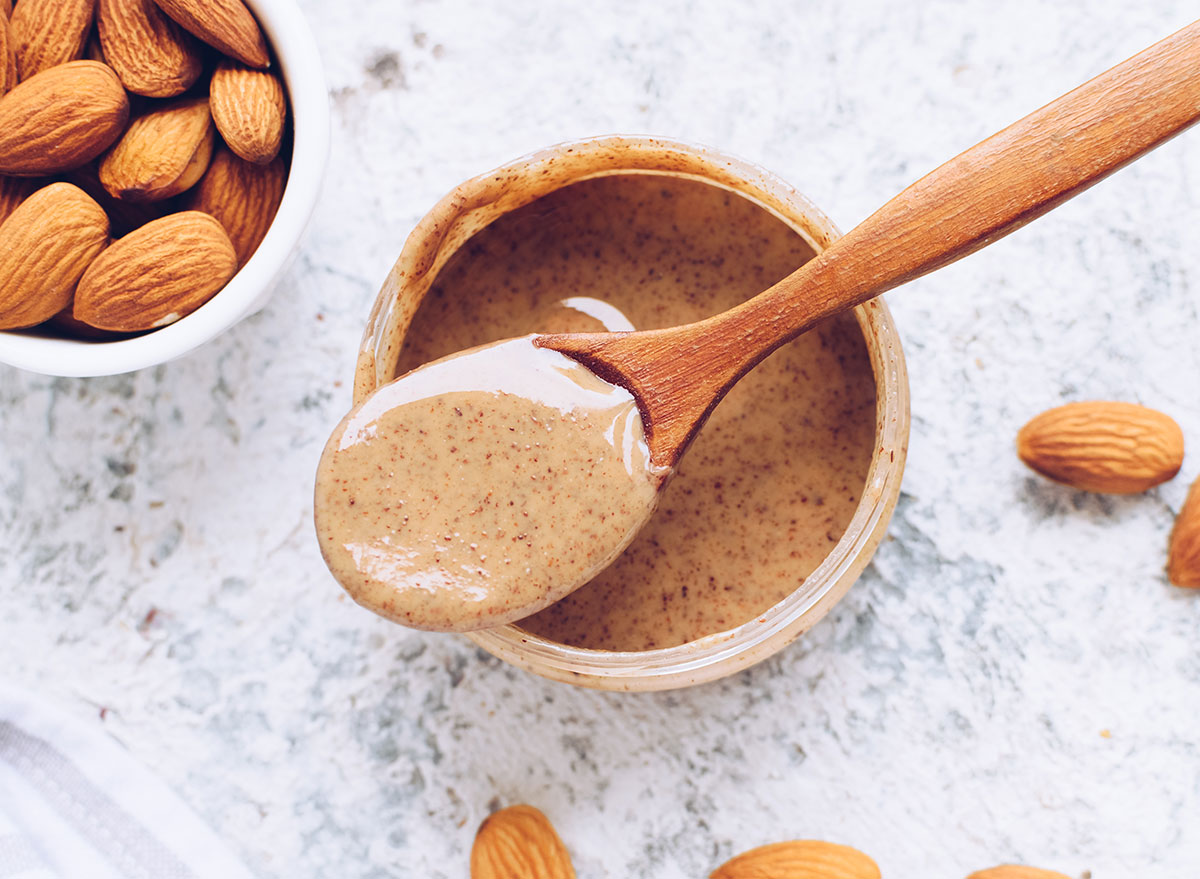
Delicious, easy and addicting, almond butter is a staple in every health nut's pantry. In one serving of two tablespoons, you receive 7 grams of protein and 16 grams of fat, making it a balanced, nutritious snack or addition to a meal. However, it also has 190 calories per serving, so it's best to stick to only two tablespoons per day. But make sure you do keep up the routine since to reap the benefits listed below, you need to have five or more servings per week, according to a certified nutritionist and celebrity chef, Serena Poon. Here's what happens to your body when you eat almond butter regularly. And for even more healthy tips, be sure to check out our list of The 7 Healthiest Foods to Eat Right Now.
You protect your cells, brain, and skin.
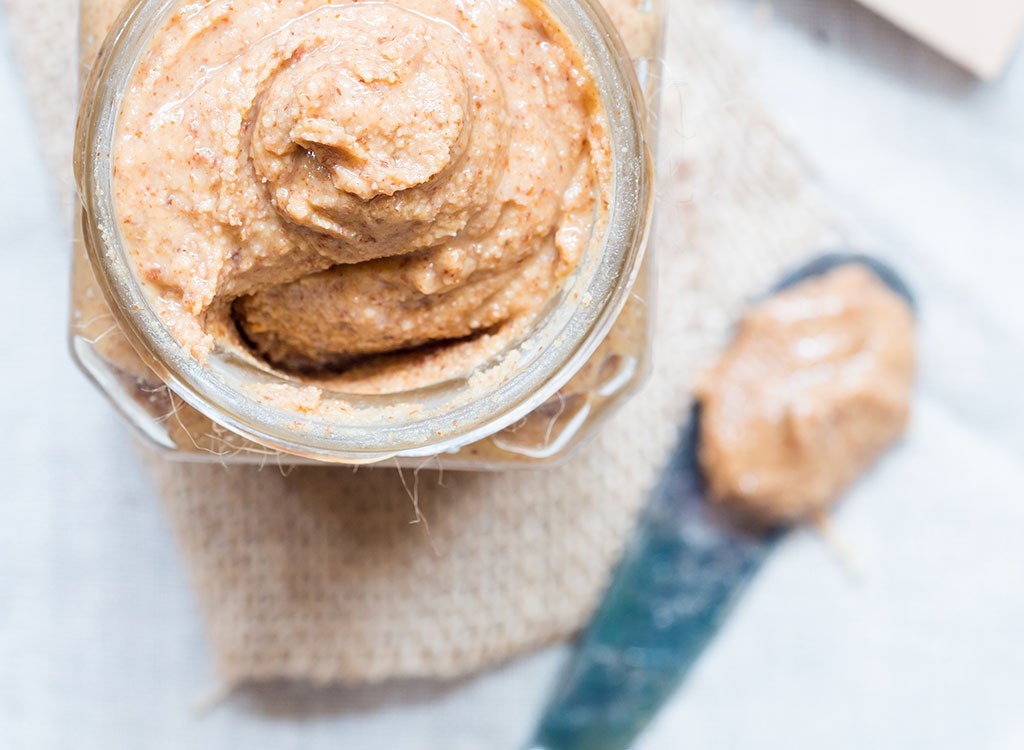
Yep, you read that correctly: almond butter does wonders for several functions and parts of your body. As Poon explains, because this nutty goody is a reliable source of antioxidants, polyphenols, and flavonoids, it's one of the best ways to support your overall health.
"Antioxidants help protect your cells from damaging free radicals caused by diet or environmental factors," says Poon. "Almonds are particularly high in vitamin E, which on top of being an effective antioxidant also supports healthy vision, brain, blood, and skin health. Adding almond butter to a diet that is rich in vegetables and fruits will boost your antioxidant intake."
Here's Why You Need Antioxidants In Your Diet—And How To Eat More Of Them.
Your hunger pangs go away.
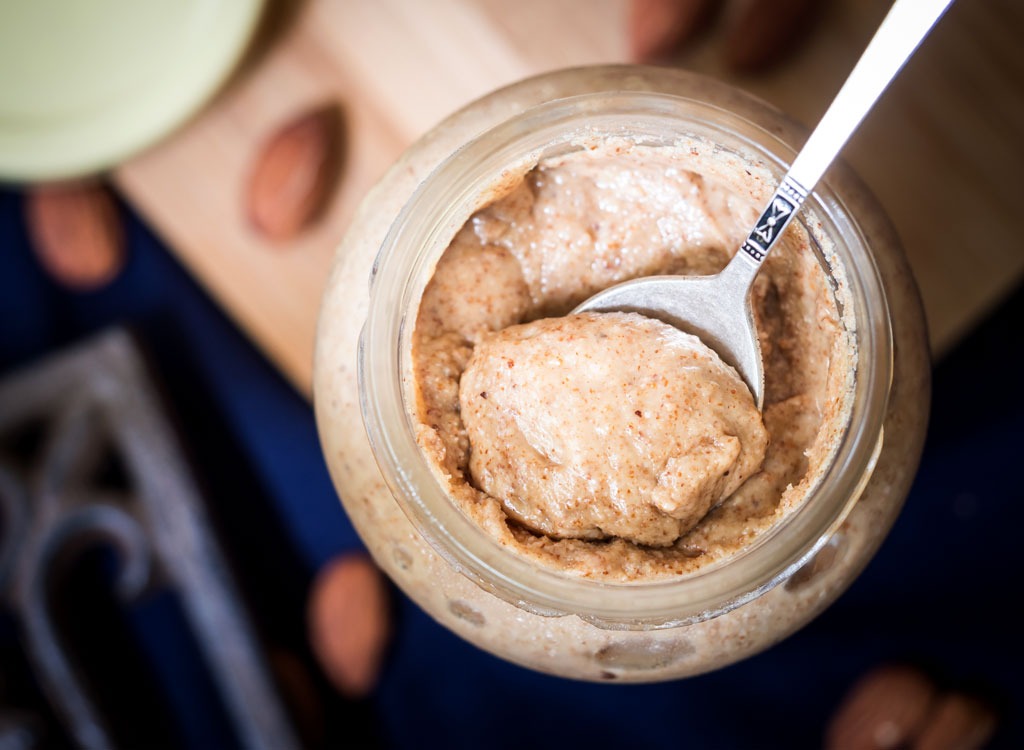
We've all been there: you're not ready to eat dinner, but you just had lunch, and you're feeling hungry. Rather than reaching for a sugar-filled coffee drink or sweet treat, eat almond butter to tame your hanger, according to Keith-Thomas Ayoob, EdD, Rd, FAND, an associate clinical professor emeritus at the Albert Einstein College of Medicine. As he points out, research has shown that having as little as an ounce of almonds (equivalent to two tablespoons of almond butter) for a snack seems to produce feelings of satiety.
You may support weight loss…

If you're hoping to drop some pounds, but you're struggling to find the right type of snacks to keep you on track, almonds or almond butter could be the answer since it's healthy and it's fulfilling.
"Using almond butter as a go-to mid-morning or mid-afternoon snack is a great way to keep you from mindlessly snacking on packaged or processed foods," Poon says.
Here's What Happens To Your Body When You Eat Almonds Every Day.
…but you could also gain weight.
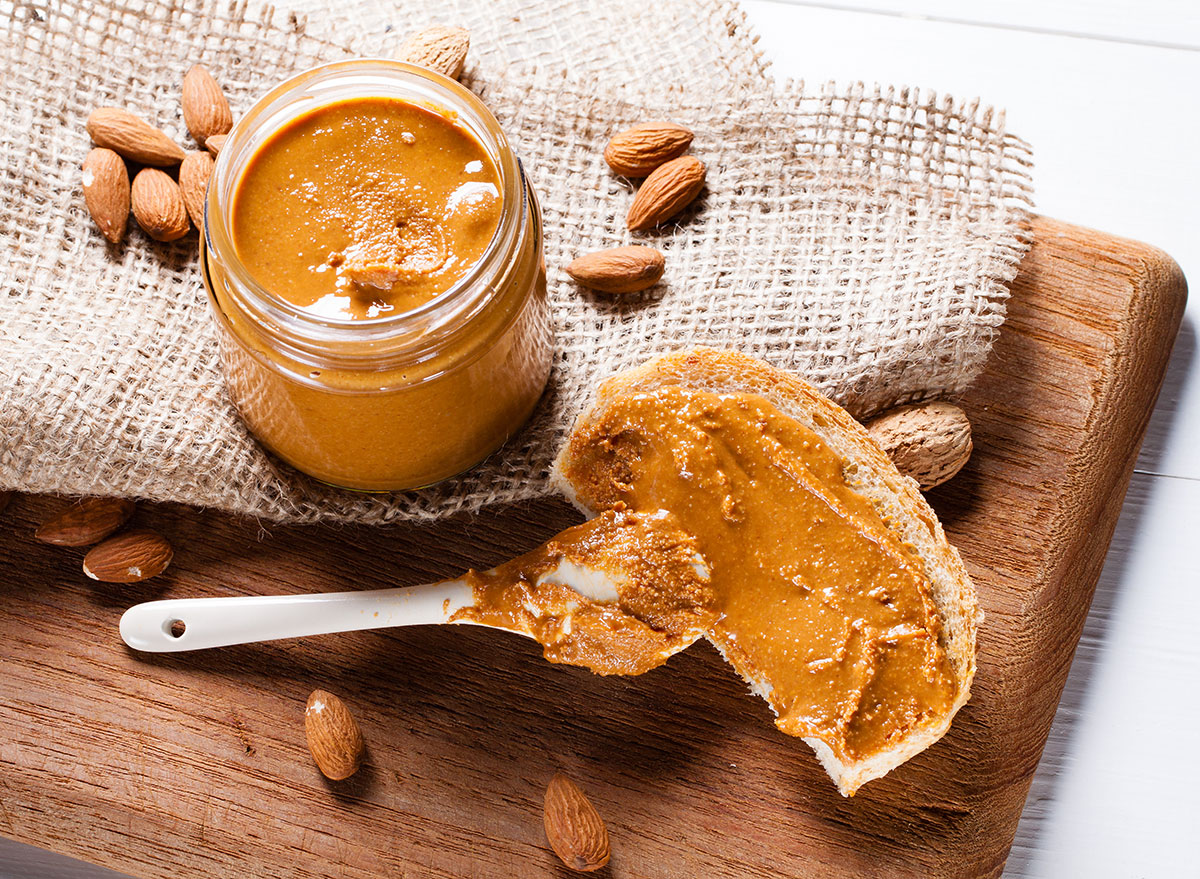
Before you start piling on almond butter to everything and eating it non-stop, proceed with caution. Though it does have many benefits, too much of a good thing is still a bad thing. Particularly since nut butters are high in calories but taste delicious, it's easy to get carried away.
"This can lead to weight gain if it becomes a regular habit. Consuming lots of omega-6s, which can promote inflammation, may also hinder metabolic health, which can potentially make it harder to lose weight," says Dr. Josh Axe, D.N.M., C.N.S, the founder of Ancient Nutrition.
You get a boost of healthy fats.
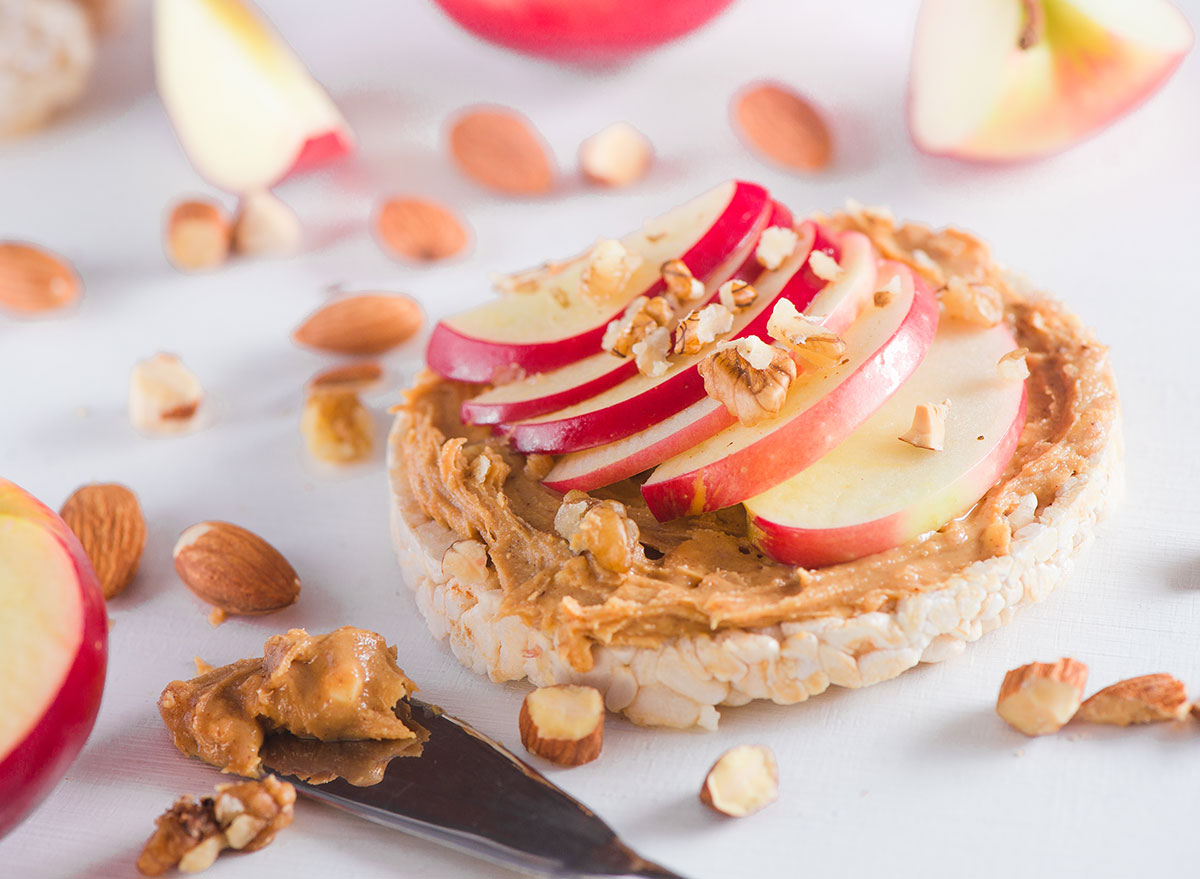
While fat using to have a negative reputation, these days, it's a welcomed part of many health-forward diets. The key is to get the right type of fat, or officially known as monounsaturated fat. When our meals have this type of fat, Poon says we reduce our risk for cardiovascular conditions, manage inflammation, and other benefits.
"If you eat 2,000 calories a day, you definitely want to fill up your 44 to 78 grams of recommended fat with mostly monounsaturated and polyunsaturated fats," she says.
And luckily, one serving of almond butter has 16 grams!
Your body keeps that good HDL-cholesterol.
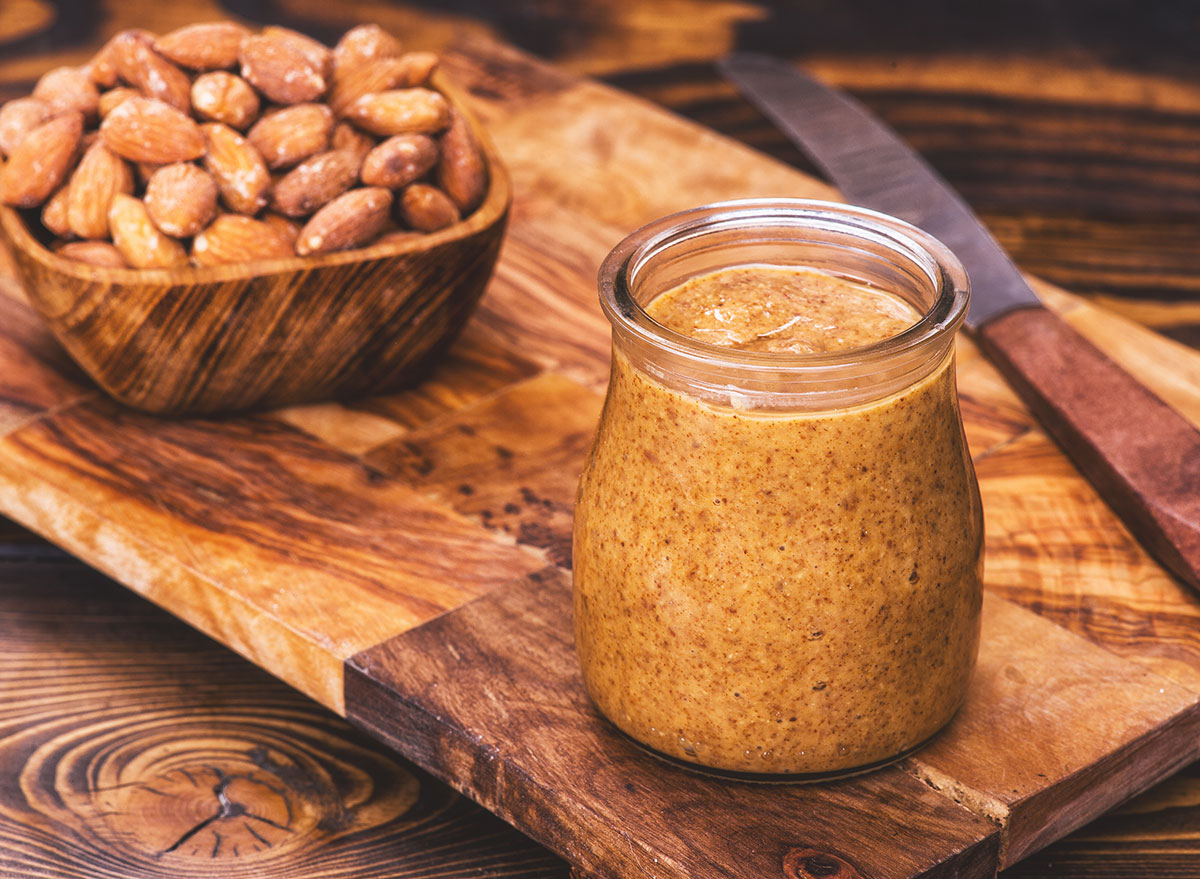
Almonds and almond butter have been shown to help reduce total cholesterol, and that's good. However, Ayoob says you really only want to lower the LDL-cholesterol because that's the form of cholesterol that causes plaque buildup in the arteries. "
Unlike some other foods that help lower cholesterol, almonds seem to preserve the good HDL-cholesterol and reduce the bad LDLs," Ayoob says. It's a win-win.
You support your microbiome.
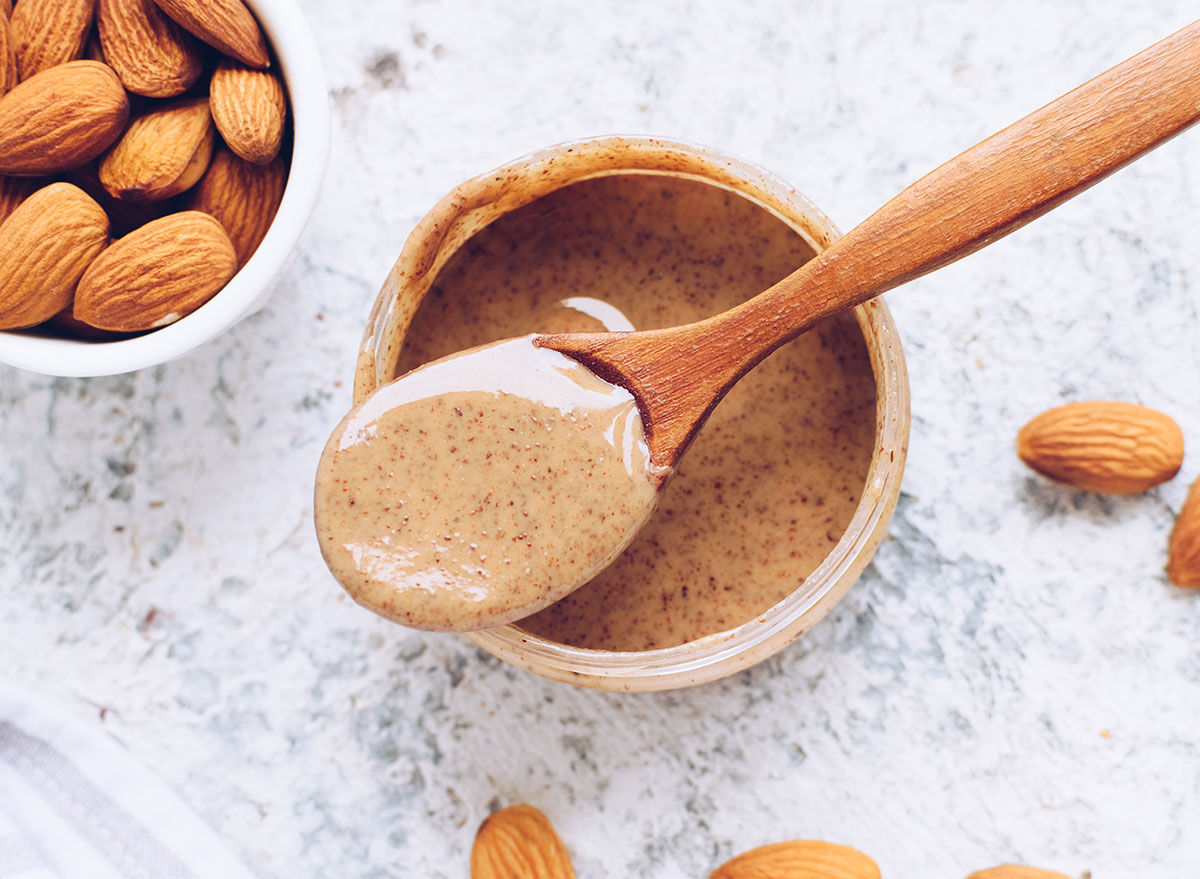
Our digestive system and specifically our gut microbiome contributes to our health in massive ways, including our immunity to disease. As Poon explains, almond butter is a good source of fiber, with about 1.5 grams per serving.
"Fiber supports a healthy digestive system, both delaying the onset of hunger and allowing things to move through your body effectively," says Poon.
Plus, if you eat almond butter, it supplies your body with prebiotics. Prebiotics are a type of fiber that fuels probiotics and supports a healthy and balanced microbiome. And no, Probiotics and Prebiotics Aren't the Same Thing.








